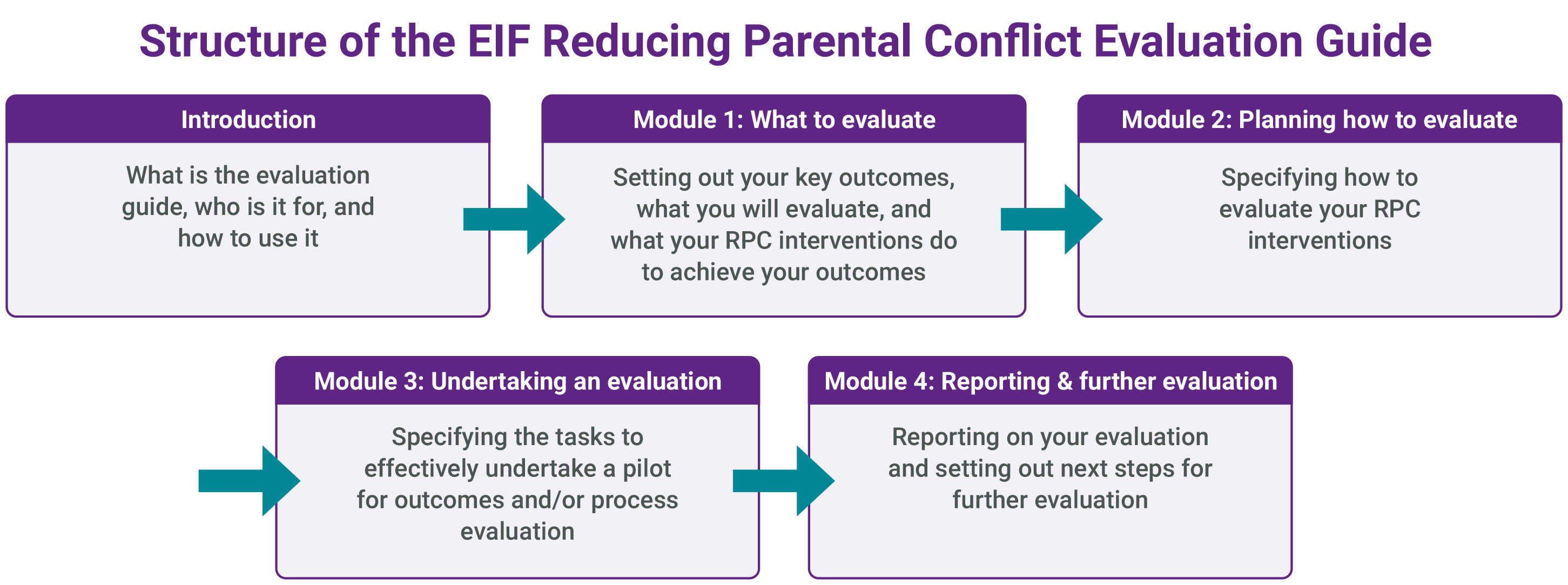Guide
Reducing parental conflict: A practical evaluation guide for local areas
This guide is a practical tool to support your local area to evaluate activities aimed at reducing the impact of conflict between parents on children.
Guide
Evaluation matters. It is important to know whether interventions to support parents in conflict are beneficial for the children and families who need them most.
Yet we know from our work with local areas, which has heavily informed this guide, that evaluation methods often feel daunting and that those commissioning or delivering RPC interventions are often uncertain about how to evaluate them.
This guide aims to address this by breaking down the process of evaluating your local RPC interventions into a series of achievable tasks, to demonstrate whether there have been changes to your intended outcomes and whether your intervention is being implemented as intended.
This guide was updated in March 2023, based on our ongoing work with local areas to support their evaluation activities.
Who is the guide for?
The guide is written for public-sector commissioners, managers and leaders responsible for local activities to support healthy relationships and reduce parental conflict. However, you do not need to be an expert in conflict between parents to use this guide, or an expert in evaluation.
How to use this guide
The guide is designed to be intuitive, interactive and as comprehensible as possible. It is structured as four modules, taking you through a series of manageable tasks.
The guide does not go beyond guidance on conducting a pilot for outcomes, as in our work with local areas we have found that most are not progressing beyond this step with their RPC evaluation. For evaluation beyond piloting for outcomes, see our comprehensive guide, 10 steps for evaluation success.
Incorporated into the guide is a range of templates and downloadable examples of important documents and tools, as well as explanatory helpers on key concepts, practical tips for all stages of the process, and practice examples from three local areas, based on our experience working with real places across England.

